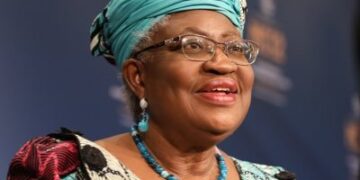In the heart of Nigeria, a nation brimming with potential yet plagued by persistent crises, the recent death of Somtochukwu Christelle Maduagwu, known affectionately as Sommie, has cast a long shadow over the nation’s conscience. Her untimely demise, a result of an armed robbery at her residence in Abuja, is not just a personal tragedy but a stark reminder of the systemic failures that continue to haunt Nigeria.
Osarogie Ogbonmwan’s video, a poignant reflection on this and similar incidents, serves as a mirror to the collective despair and frustration of millions. His words, “No death is tragic enough in the Nigerian context for us to expect that things will be better next week,” resonate with a painful truth that stakeholders across the board must confront.
Ogbonmwan’s narrative is not merely a lamentation but a call to action.
He recounts Sommie’s death alongside other harrowing incidents—the doctor trapped in an elevator, the cyclist knocked down, and the fire in Marina. Each event, while momentarily shocking, fades into the background as the status quo remains unchallenged. The lack of ambulances, the inefficacy of emergency services, and the government’s failure to learn from these tragedies are not isolated events but symptoms of a deeper malaise—a governance system that prioritizes reaction over prevention.
This cycle of inaction is not just a failure of policy but a betrayal of trust. Stakeholders—government officials, business leaders, civil society organizations, and the citizenry—must recognize that the absence of change is not a passive oversight but an active choice.The government’s inability to respond effectively to Sommie’s death and similar tragedies underscores a lack of accountability and transparency, as highlighted by recent analyses from Transparency International and governmental reports.
The 2020 floods, the 2017 Benue State flooding, and the ongoing security challenges are testaments to a system that fails to protect its citizens.
The stakes are high. Nigeria’s population, over 200 million strong, deserves a future where safety and progress are not luxuries but rights. The economic implications alone are staggering; a nation unable to protect its citizens or infrastructure cannot attract investment or foster sustainable development. Business leaders, in particular, must advocate for policies that ensure operational stability and public safety, as the current environment undermines their own interests.
Civil society plays a crucial role in this paradigm shift. Organizations must amplify voices like Ogbonmwan’s, pushing for legislative reforms, better emergency response systems, and a culture of accountability.The disbandment of the Special Anti-Robbery Squad (SARS) in 2020, while a step forward, must be followed by systemic overhauls that address the root causes of corruption and inefficiency. For the government, the message is clear: the time for rhetoric is over. The establishment of agencies like the National Emergency Management Agency (NEMA) and the Economic and Financial Crimes Commission (EFCC) was a start, but without enforcement and continuous improvement, they remain hollow structures.
Stakeholders must demand measurable outcomes, not just promises.The international community, too, has a role. As Nigeria navigates its path towards stability, global partners must support initiatives that strengthen governance and infrastructure, rather than merely offering condolences after each tragedy. Sommie’s death is a wake-up call. It is a reminder that “there is no never again” in the Nigerian context. Each tragedy is a missed opportunity for change, and each missed opportunity deepens the cycle of despair.
Stakeholders must break this cycle by demanding systemic change, fostering a culture of accountability, and ensuring that no life is lost in vain. The future of Nigeria depends not on the severity of its tragedies but on the resolve of its people and leaders to act decisively. It is time for a new narrative—one where change is not just hoped for but demanded and delivered.
Sommie’s Tragic Death: A Wake-Up Call for Nigeria’s Stakeholders to End the Cycle of Inaction
0
SHARES8
VIEWSRecent News
October 2025
October 9, 2025
Electric Horizons: Team Brazil Dominates Inaugural E1 Lagos GP
October 6, 2025
© 2025 Stakeholders Magazine




























